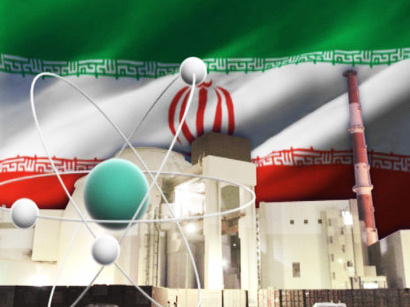Russia expects 'flexibility and readiness' from Iran to meet int'l demands

By Sara Rajabova
The discussions over Iran's nuclear program continue more intensively ahead of the meeting of Iran and the IAEA, which will take place on September 27.
However, the time and place for the new round of talks between Iran and the P5+1 -- the five permanent members of the UN Security Council plus Germany -- have not been determined yet.
Meanwhile, Russia says that the negotiations on Iran have a chance to succeed.
Speaking about the negotiations on the Iran nuclear issue, Russian presidential aide Yuri Ushakov said that Tehran should show flexibility and the six powers should react to the positive steps which are expected from Iran, RIA Novosti reported.
"We coherently and permanently speak in favor of a settlement of the situation related to the Iranian nuclear program only through political and diplomatic means, and a military solution is absolutely inadmissible. We believe that the negotiations have a chance of success. It is necessary that Iran show flexibility and readiness to meet the requirements of the international community," Ushakov said.
He noted that these requirements are indicated in the resolutions of the UN General Assembly and the IAEA Board of Governors.
Ushakov stressed that there should not be any artificial pauses in the negotiations on the Iranian nuclear issue, and the "six" should meet in the coming days.
"We feel that the negotiation process would dynamically develop without unnecessary artificial pauses. We believe that the next meeting of the 'six' on Iran should be held as soon as possible," he said.
Iranian Deputy Foreign Minister Hossein Amir-Abdollahian said on September 10 that the Iranian Foreign Minister intends to discuss the time and venue of the negotiations between Iran and the "six" international mediators with European Union foreign policy chief Catherine Ashton in late September.
After the election of Hassan Rohani as Iranian president the leaders of the states that are concerned over Iran's nuclear program expressed hope for resolution of the dispute and expressed readiness to engage in a new round of nuclear talks with the country.
Rohani said recently that Iran is fully prepared for holding substantial talks with the world, the P5+1 and also the IAEA, and expressed hope that the nuclear issue between the country and the Western countries would be solved soon.
Rohani has officially assigned the Foreign Ministry to deal with the country's nuclear issues with both the UN nuclear watchdog IAEA and the P5+1 group.
However, despite the positive remarks by Iran and world powers, some experts are downbeat over the resolution of the Iran nuclear dispute.
Thus, expert on nuclear issues Reza Taghizadeh told Trend news agency that President Rohani is too optimistic regarding a swift solution to the nuclear issue.
Taghizadeh said he doesn't think that Iran's nuclear problem will be solved in a short time.
"Talks on Iran's nuclear program have been ongoing for some 25 years and during the last 7 years the UN has been opposing the country's nuclear program, but there has been no result. How is it possible now to resolve the nuclear issue in a short time?" Taghizadeh said.
He said further that one thing Iran can do over the short term is to try to build confidence with the Western states.
"Iran could take some actions that would allow the international community to be less worried about its nuclear program," Taghizadeh said.
Iranian Foreign Minister Mohammad Javad Zarif and Catherine Ashton agreed to meet on the sidelines of a UN General Assembly session in New York in late September to discuss a resumption of negotiations over the nuclear issue.
Iran and the P5+1 have held several rounds of talks on a range of issues, with the main focus being on Iran's nuclear energy program.
The sides wrapped up their latest round of negotiations on April 6 in the Kazakh city of Almaty. An earlier meeting had been held in Almaty on February 26-27.
The West suspects Tehran's nuclear program may be aimed at developing nuclear weapons capability, but Iran insists it is purely for peaceful purposes.
Iran reiterates that its main demand is that its right to uranium enrichment, as stipulated in the NPT agreement, be recognized.
